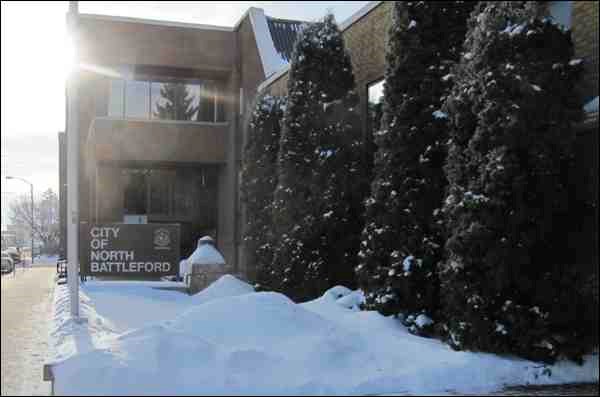The 2018 city budget is out, and it’s not as painful as many had expected.
Despite earlier pronouncements of doom and gloom in the wake of the spring provincial budget cuts, the 2018 operating budget is calling for modest increases of three percent for property tax, and 4.5 percent for base water and sewer as well as consumption rates.
The budget is also proposing maintaining the current spend for UPAR - Underground Pipe and Asphalt replacement - at approximately $3.3 million.
According to the message from city manager Jim Puffalt that accompanied the budget, he credited a “massive effort” by council and staff, especially following the provincial budget cuts in which the city was forced to make budget revisions, for keeping the property tax increase down to three percent.
“This is a major achievement, as when the long-term ramifications of the loss of revenue and increased costs in the 2017 provincial budget were considered at that time, there were projections of a 10 to 12% increase in property taxes would be required in 2018,” Puffalt stated.
Puffalt told reporters following the meeting that “Council and staff took this challenge on and said ‘we can’t come back to the community with a 12 percent increase’. It’s not going to be realistic and it’s not fair. We had to take lots of steps back in April in order to do this.”
The rationale for the three percent increase is, in part, to be prepared “in case we get absolutely nailed like last year” in the provincial budget, Puffalt told reporters.
Puffalt also stated in the budget document that the three percent increase would allow the City to “break the long term cycle of borrowing our debt repayment every year.”
“We have an opportunity for the first time where we don’t have to borrow the full amount that we pay,” Puffalt said to reporters.
As for the 4.5 percent water and sewer hike, Puffalt told reporters that particular number also makes progress in that area as well.
He estimates the overall reduction for long-term borrowing is at $550,000 for 2018.
Puffalt has credited changes implemented in their 2017 Customer Service Review for bringing down costs.
Still, the increases are only proposals at this stage and adjustments could still be made by council during the deliberations.
The full budget document was formally presented to council Wednesday night during the first night of budget deliberations.
The actual budget document was circulated to council members and the media on Nov. 27, but the contents were kept under embargo until the Wednesday deliberation session was over.
The full document was expected to be up on the City’s website by Thursday.
The city has scheduled three deliberation sessions for Nov. 29, Dec. 4 and 6. If all goes well and no further meetings are required, the expectation is that the budget could go to council for adoption at the Dec. 11 council meeting. This is the third year in a row that the budget is being presented before Christmas.
The budget is the first one prepared and presented by the city’s new director of finance Amarjit Mahil since taking over the role from David Gillan this summer.
The first evening saw the budget presentations from some city government departments: Fire and Protective Services presented by acting Chief Trevor Brice, General Government, and the UPAR Program.
The capital plan for fire and protective services includes $20,000 for emergency generator replacement, $90,000 for a flash-over unit to train staff in dangerous fire situations, and $50,000 for new equipment installation for municipal enforcement.
For UPAR, streets to be done for this year include 98th Street from 17th to 18th, as well as 105th Street from 10th to 11th Ave. Some street rehabs are contemplated for Douglas Ave. and the Foley Dr./Thomas Ave. overlay, among other work.
There is no increase to UPAR rates proposed for this year. “We’ve had the program for three years now, there have been increases every year, and the feeling was to maintain existing levels and not to increase it,” said Mayor Ryan Bater to reporters following the meeting.
Nevertheless, the infrastructure deficit is still there. City administration nevertheless cited the importance of continuing the work.
“The problem’s not going away, this is a long term game,” city engineer Bob Anthony told council.
For general government, revenues are expected to go up $385,000 due largely to return on investment funds, among other items; there were also reductions in council remuneration and travel by $33,000 and a decrease in wages and benefits by $203,000.
But the main business Wednesday consisted of hearing from delegations seeking third-party grants from the city.
Those on the agenda Wednesday making presentations were Transit, the Dekker Centre, the Boys and Girls Club, Concern for Youth, and Midwest Food Resources.
Transit is looking for a 4.63 percent increase for 2018, to $271,280, with expansion funding accounting for that rise.
Moe McGuinty appeared for the Dekker Centre to ask for $235,000. It is an increase of $15,000, and it’s the first time they have asked for an increase in funding from City Hall in five years of operations.
Battlefords Boys and Girls Club’s request was for $25,000, unchanged from the previous year (they also receive $15,000 annually from the city under an agreement for capital funding of their building); Concern for Youth’s ask was for $35,000, a $10,000 increase; and Midwest Food Resources’ ask is for $10,000.
Council were due to resume deliberations again on Monday night. On the schedule for that meeting were infrastructure, waste management, and the water and sewer departments.




